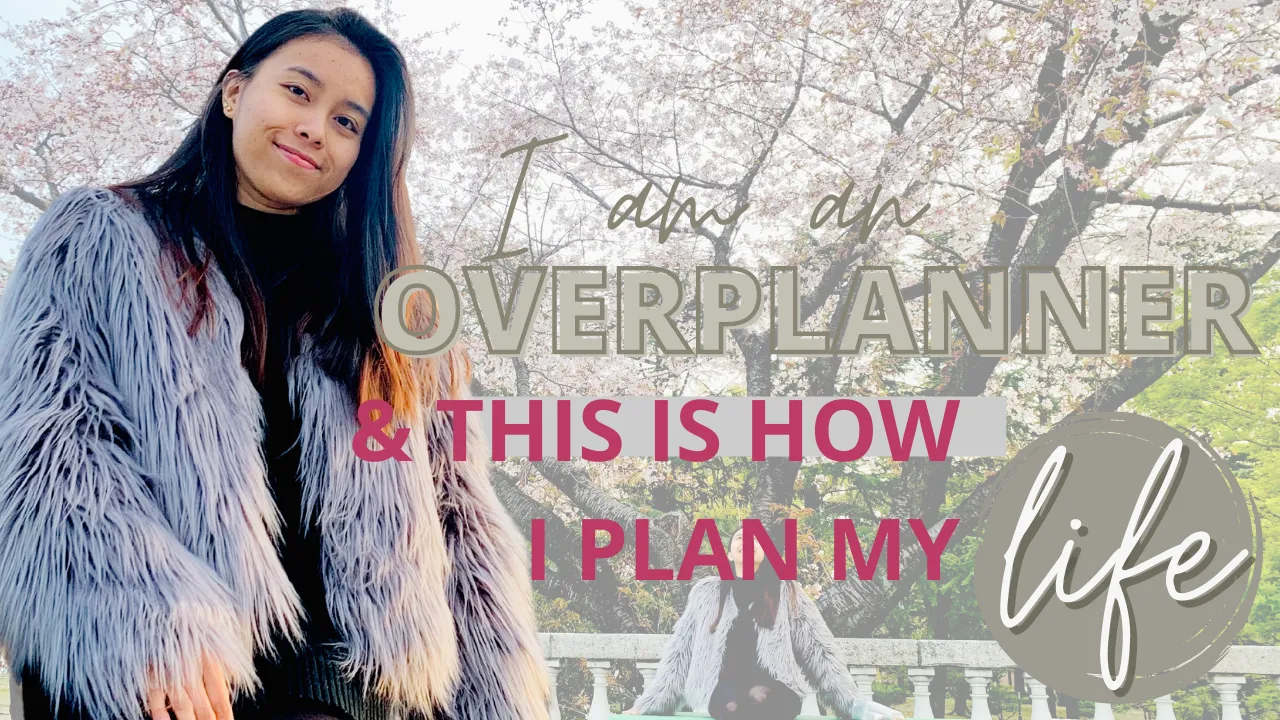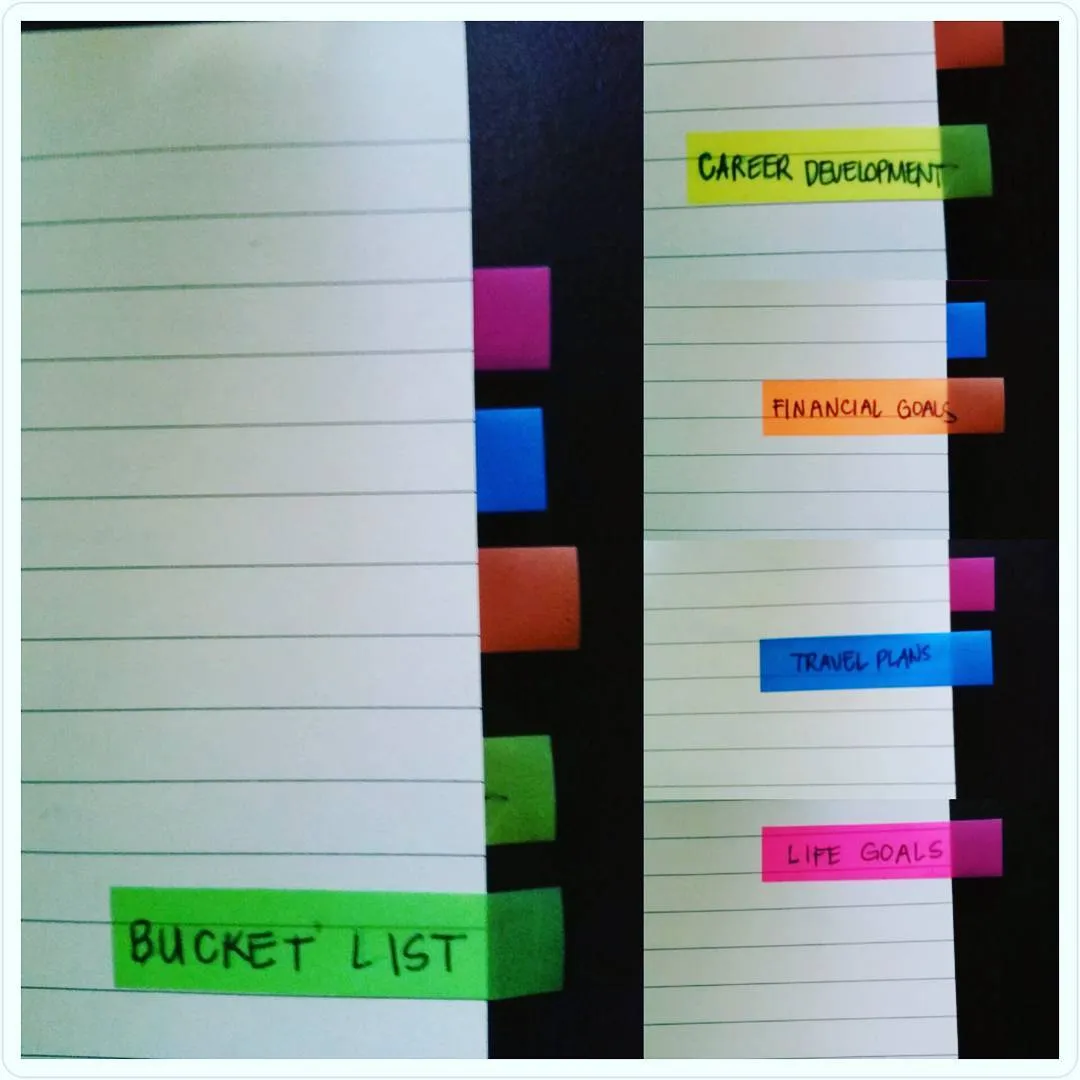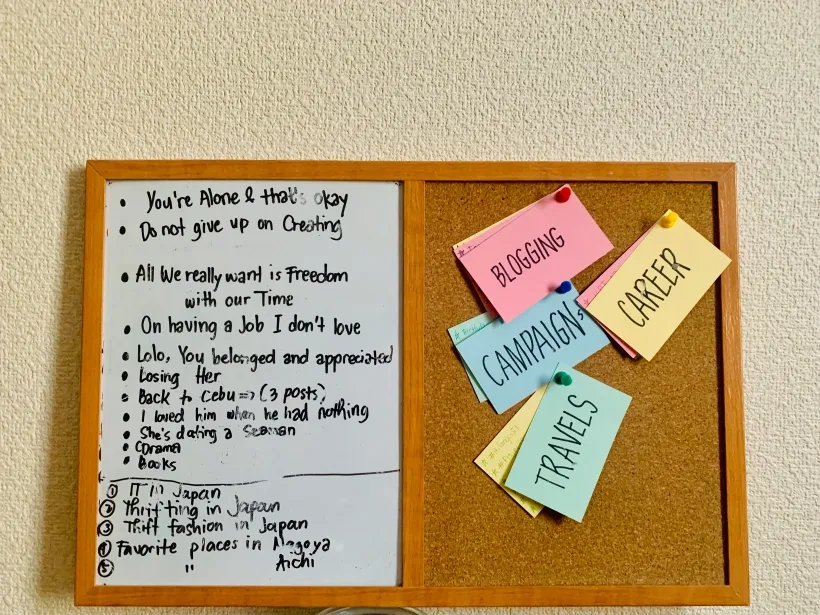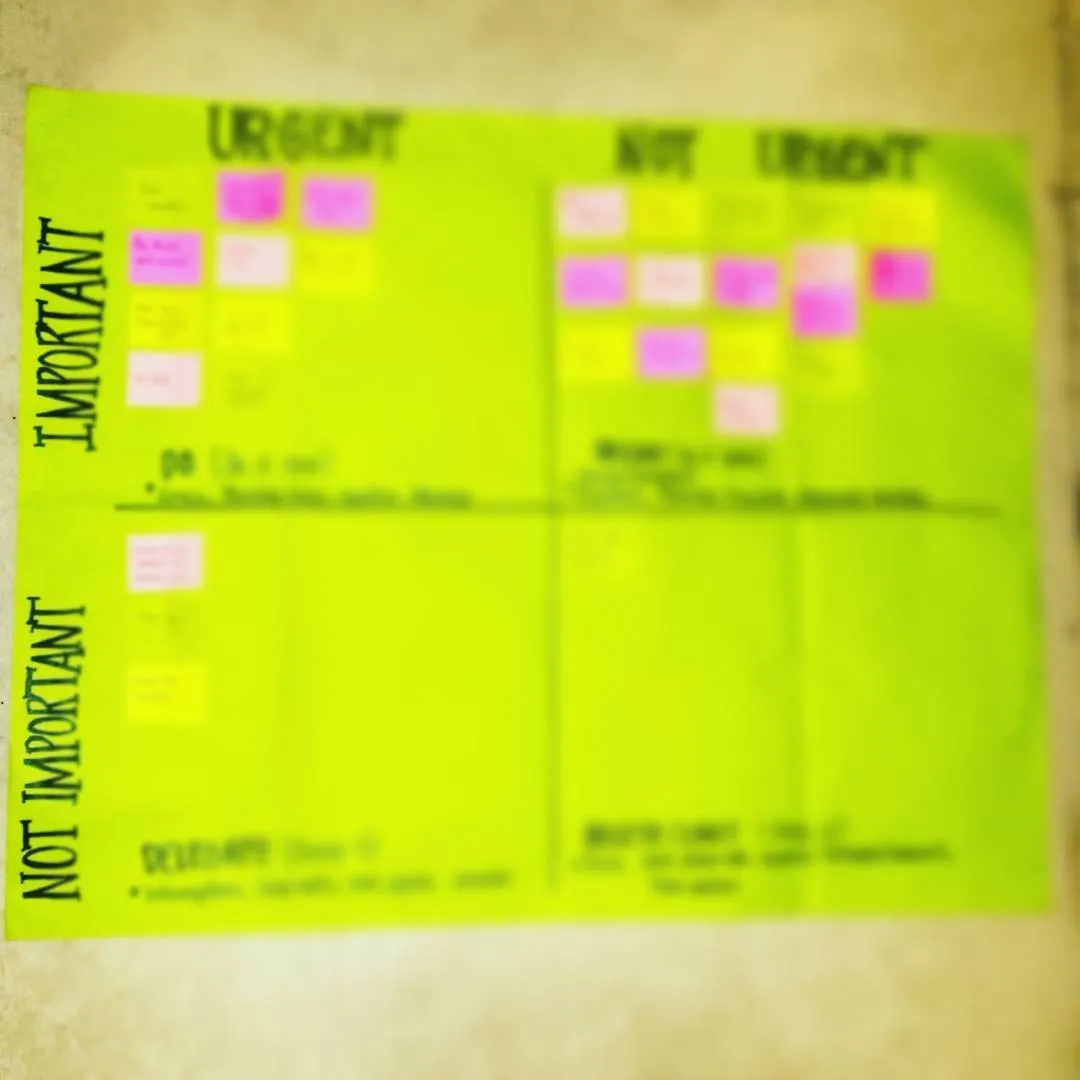
I got used to people slamming me that I am such an over-planner. I mean, why would they do otherwise? I plan my trips up to the last minute. I have a daily to-do list. My daily time frame is scheduled. I have quarterly and annual goals. I am fully aware of how meticulous I am, and I take take people’s sentiments as a compliment.
Throughout the years, I truly embraced the benefits of planning, not just my daily tasks, but my life as a whole. It has given me more direction and it has allowed me to define my ever-changing objectives from time to time. Planning surely did allow me to refine my goals, cultivate grit, and establish focus. I have always treasured the importance of planning. With that, I am writing this article for those who would also like to use the power of planning as a guide on the paths they wish to take in life. Welcome to the world of an overplanner!
It’s okay if Planning isn’t for you
As constructive as planning may sound, I would like to emphasize that this is not the only way to do things. This is not a protocol! Some people are like me, who are very meticulous with the things that we do, but there are also people who loves spontaneity and we have to respect that. Before I talk about planning, I just want to encourage everyone to accept and acknowledge our differences. We have to establish that this is not a race, and this is not about who’s more structured. Life should not be about following societal standards. It should always be about feeling more alive.

Now, to Planning . . . .
I have a planning routine. A planning routine is basically a regular time to sit down and retrospect. I don’t know if having a planning routine is popular for others but I’ve always had a planning routine since I was in college, and that’s when I was still 16 years old. At first, having a planning routine was a product of a very demanding college life in UP, while I was juggling my academics and my organizations. Instead of giving up on having a planning routine as I get older, I’ve been consumed into developing a more comprehensive and apt routine for myself. Today, I am sharing my planning routine to you in the hopes that you find it useful for your future endeavors, whatever noble things that may be.
My Planning Routine
Before I discuss my planning routine, I would like to highlight that this may not work for others. This is a routine that I constructed for myself, thus, it may not be preferrable for other people. Therefore, I hope you do not limit yourself with whatever steps that are defined here.
So finally, in the following order, here is my planning routine:
1. I choose the “Big Planning Day”
The Big Planning Day is basically the time when I layout all of my plans in life. This is the day when I define my long-term and short-term goals. This is the day when I define the things that I want to pursue and continue. This is also the day when I decide what things I will stop doing. With the volume of things to think about during this time, I usually spend a whole day for it.
When is my “Big Planning Day”, you may ask? Well for me, it is every first Sunday of the month. Yes, I do it monthly now. When I was still new to this planning-my-life routine, I used to have my “Big Planning Day” yearly, and that’s usually a day in the week of the New Year. I bet many does that, too. That’s just the effect of the New Year, we all suddenly want to plan our lives, to think of New Year Resolutions. So yes, I did that before, but planning yearly didn’t seem to work for me. As a Multipotentialite, I do change my mind a lot. I quickly lose interest on things that I’ve already mastered. With that, doing and laying out my plans yearly was not very effective for me. From yearly, I shifted to doing it quarterly. However, with how quickly my mind and schedule changes, planning per quarter didn’t seem to work out as well. And so, I concluded that monthly planning was perfect for me.
The benefits of planning my life monthly includes being able to plan what I do weekly. Setting a weekly goal is very important for me because it allows me to implement tangible steps to achieve my goals. For example, if my goal is to read 20 books for the year 2020, I can then calculate that I need to at least read 2 books per month with 125 pages per week. With that, I can easily adjust my targets monthly and weekly based on my progress. So, if I was not able to achieve my weekly reading targets this week because I was so busy, I would quickly judge that I would need to do better the following week or the following month. This routine is also very effective for goals like my business growth, losing weight, fashion goals, money savings, and the likes because it allows you to layout your weekly or even daily targets. Hence, I decided to plan monthly.
2. Create my Long-term Goals
The next step would be to plan my Long-term Goals during the “Big Planning Day”.

Long-term goals, for me, are goals that can be achieved in 1 or more years. I started defining my Long-term goals by putting them into 5 categories; Bucket List, Career, Finance, Travels, and other Life Goals. The Bucket List category is for super extra ordinary things that I want to do at least once in my life, like Sky Diving or Bungee Jumping. Career goals are for things that I want to do and add value to my career such as getting a Japanese Language Proficiency Test (JLPT) Certificate, getting a Master’s in Business Administration, or gettting a Bachelor’s Degree in Music. Finance goals for me are yearly savings goal targets, getting an insurance, buying a car, or building a house. Travel goals for me are the Project 81 Philippines, Asia, the Euro Tour, or the Trans-Mongolian Route Tour. Lastly, other Life goals for me are things that do not fall to the other categories like goals for my advocacies, my Glossophile goals, or my goal to study Kung Fu in China. During the “Big Planning Day” monthly, I check and ponder on the list I created, and if I think of new goals, I add them all down. I list whatever goal I can think of, even when I think they are crazy ones.
This list of Long-term goals do not have to be realistic in the mean time. They just have to be listed there in order for you to always be reminded of the things you want. Oftentimes in life, we tend to forget the things that we love and want because of how roughly life treats us. With listing all your Long-term goals there, it will serve as your constant reminder of your future and in return, it will give you something to expect. In return, it will give you hope.
3. Layout my Short-term Goals
From the long-term goals that I have identified, this is when I layout my more tangible and concrete goals; my short-term targets.

For me, short-term goals should be based from the long-term goals that I have listed. Short-term goals should be targets that I plan to achieve in less than a year.
I create my short-term goals by first, checking out the list of my long-term goals and knit-picking those goals that I feel like I can realistically achieve in 1-year time or less. So for example, for my current long-term career goals I’ve written there that I want to have a JLPT Certificate. I think that it is achievable this year, so for my short-term goal I identified that I want to take the JLPT N3 exam on July 2020. Notice that I chose JLPT N3 instead of JLPT N1 because that is what I think is realistically achievable for this year. For travels, on the other hand, out of all the long-term travel goals that I’ve set, I only listed local Philippines and Japan travels because duh pandemic and that’s the only travel goal I think I can achieve this year. Again, short-term goals are targets idetified from the long-term goals you created and these targets should be achievable less than a year from your planning day.
4. Create your Action Plan
You do not stop with identifying your goals. Your goals should see you walking the talk. You should create the system of your actions; your Action Plan. This is when you turn your short-term goals into actual tasks.
This is perhaps the most time-consuming part of the planning. Since my “Big Planning Day” is done monthly, my Action Plan is also done monthly, and that means, my Action Plan only consists of the things I plan to do in the coming month. For this, I use Covey’s Time Management Grid to give me a clear perspective on the priority of my tasks.

Covey’s Time Management Grid will allow you to evaluate your current lifestyle and tasks and with it, you can separate them into 4 clusters considering their importance and urgency. For more information on how to use Covey’s Time Management Grid, click here.
After I’ve identified the priority of my tasks, I schedule all of them to my Daily Planner; the Google Calendar. When I was still in college, I used to buy a physical Planner to sort out and schedule my to-dos, but eversince many technological advancements were introduced, I figured that we should take advantage of these high-tech tools that are free to use. With Google Calendar, I can add locations, notes, images, and even set up alarms and notifications if I want to. The major advantage is I’m saving paper by using it. I was one of those who love writing on Planners before, but I strongly suggest these new tools because they truly make you more productive.
Using the priority list of the tasks that I created from Covey’s Time Management Grid, I give each task the time intervals and allocations necessary to complete them. For example on my book reading goals, I’ve identified in my short-term goal creation that in order to read 20 books this year, I need to read 2 books per month, thus at least 125 pages per week. In my reading capacity, I think that I can reach that target by reading utmost 30 minutes everyday. And so in my Google Calendar, I scheduled 11:30pm-12am as my Reading Time, which I have also set an alarm for reminder. I can also remember a few years back when I made it a goal to lose weight. This system was very effective in hauling myself up to jog everyday. For a person who is always busy, it is very important that I schedule all of my to-dos for the whole month in my Google Calendar or else, I would forget them. If you’re like me, it might be helpful that you do this as well.
One last thing before I close this sub-section. I would like to remind you to allow yourself a breather. As religiously as you plan and schedule your to-dos, make sure you also plan for rest because if you won't, the whole process will not be sustainable. I realized later on that it is also important that we have days and moments when we are free to do whatever we want. So, make sure to set up a weekend or a day that you don’t have to follow a schedule or you don’t have to impose limitations for yourself. Cheat days are as important as productive days.
5. Acknowledge Mishaps and adjust
No matter how much you try to execute things perfectly, they will always go wrong at some point. Mishaps, big or small will always occur. For a perfectionist person like me, I’ve struggled to acknowledge and accept that fact. In the past, I’ve been really hard on myself. I punish myself everytime I fail on targets, and I realized that being too hard on ourselves will only discourage us to push through because everything will seem transactional. With that, I’ve allowed myself some failures and mishaps in the long run.
During my monthly “Big Planning Day”, I do not only plan, but I also retrospect. I evaluate my progress and I adjust my goals and action plan based on them. For example, during my March 2020 Planning Day, I’ve come into the conclusion that my JLPT N3 target for July is no longer achievable since I didn't have the time to study Japanese everyday because I always did overtime at work. And so, I accepted that and moved the target from July to December. Another example would be the effect of the COVID-19 pandemic to my travel goals. I accepted that I need to cancel my Trans-mongolian travel until further notice, and that my South Korea trip will have to wait until the pandemic becomes under control and God knows when that will be.
This is the beauty of having the “Big Planning Day” monthly. Many things can happen in a month, thus, planning monthly allows us more opportunities to apply adjustments promptly and easily.

I have heard from people sometimes that they have lost their direction or purpose in life. That has happened to me, too, in 2017. I’ve had a brief existential crisis, and that was when I was too busy to do my planning routine. I think existential crises happen not because we do not know what we want or we do not know our purpose. I think, these moments occur when we forget our goals, wants, and purpose. Life is just to harsh sometimes that we get plunge into a dark hole and we forget things that once mattered to us. That is why my planning routine is very important to me. They remind me of my wants, my goals, my hopes, my dreams and my progress. They remind me to be hopeful and to always have something to expect. They remind me that I have progressed, may those steps be big or small. That is also why I am sharing this with you today. I hope you too will be reminded of the better person you have become or you are set to become. After all, a person is not what he or she is now. A person is what he or she is hopeful for, what he or she dreams of, what he or she is set to become.
All love,
